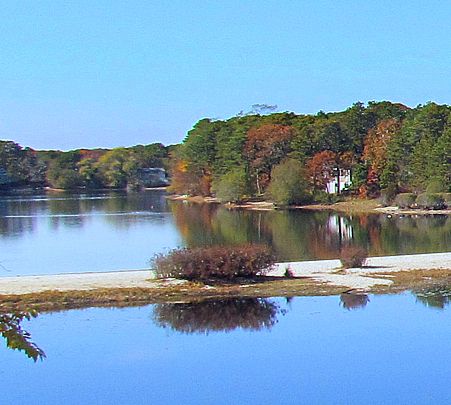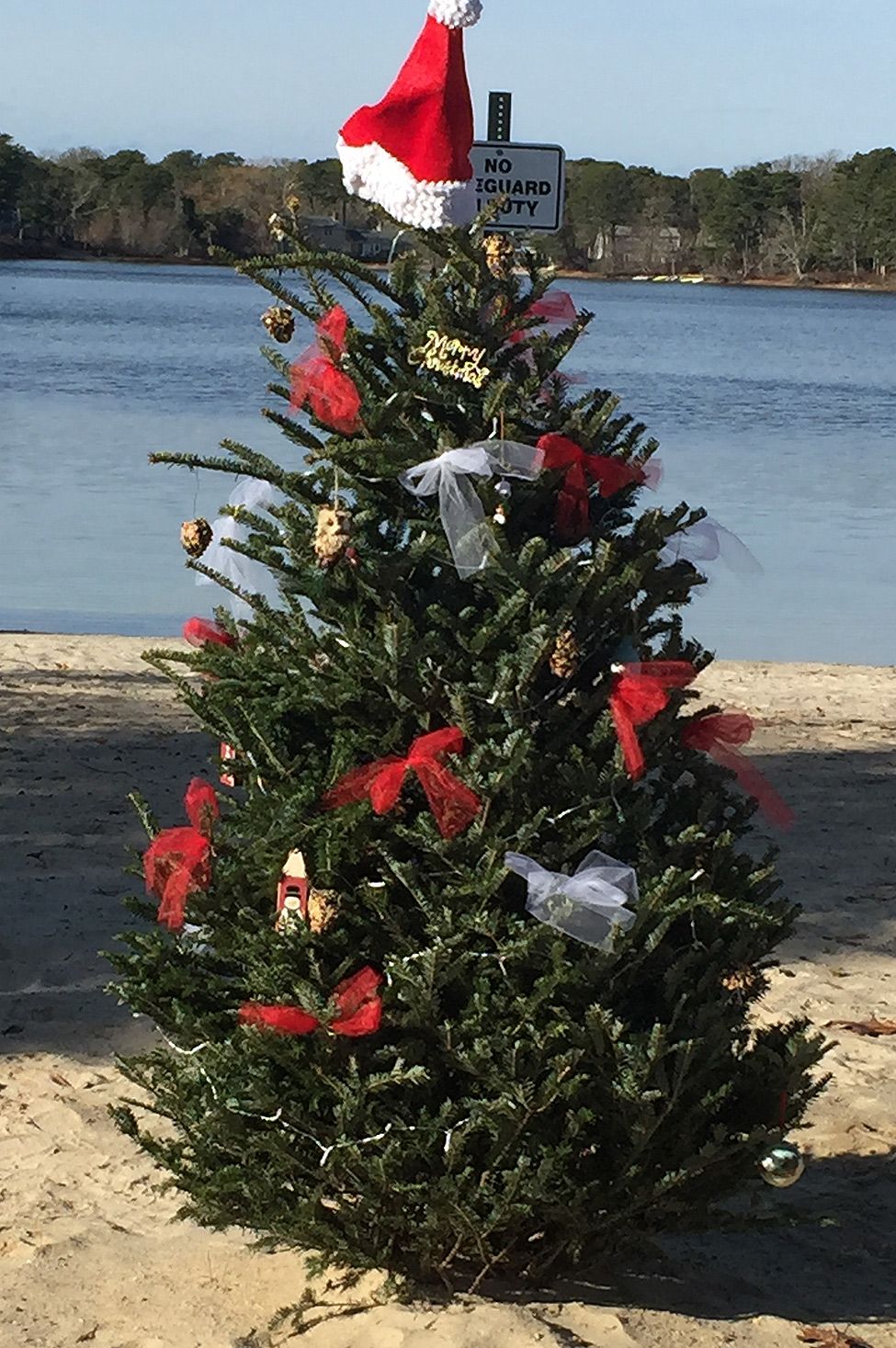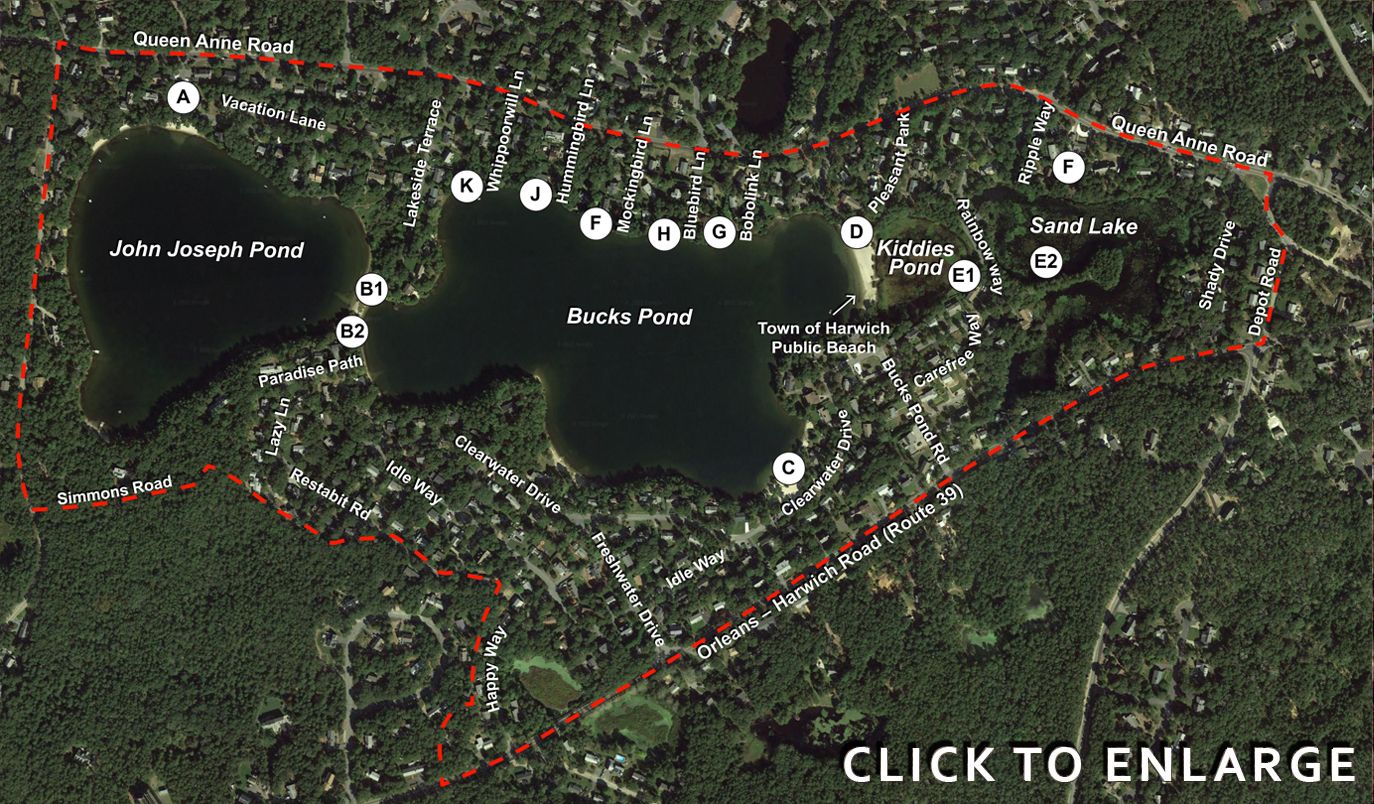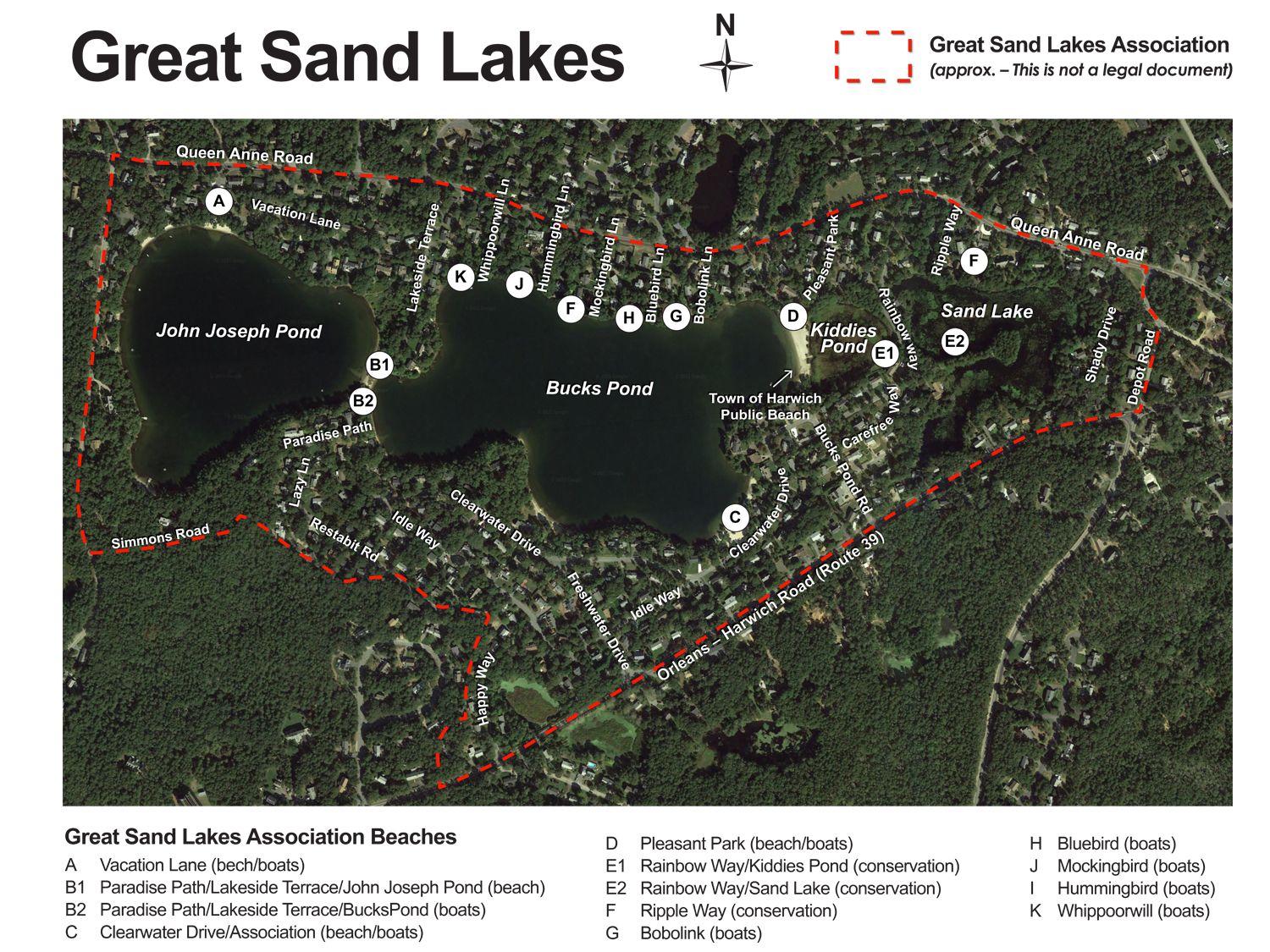Great Sand Lakes Association
Welcome to the Great Sand Lakes, a neighborhood community in Harwich, Massachusetts. As proud stewards of several kettle ponds on Cape Cod, we are committed to protecting the water for our recreational enjoyment and the town wells they feed just two miles away.
On this site you will find information about the Great Sand Lakes Association which owns and maintains the beach areas. There are forms, pictures, water quality reports and a discussion board of current topics.

Analysis of Water Quality Data Collected at Bucks Pond and John Joseph Pond, 1999-2021
Stay Informed!
ALL DATES AND TIMES ARE TENTATIVE. PLEASE CHECK BACK FOR UPDATES
Upcoming Events

ALL DATES AND TIMES ARE TENTATIVE. PLEASE CHECK BACK FOR UPDATES
Upcoming Events
BARNSTABLE — For years, pollution from septic systems has spawned algae blooms,toxic bacteria, and a putrid scum coating the waters of Cape Cod, destroying vitalecosystems, contributing to coastal erosion, and harming tourism.
“The water that comes from this system is treated to such a high degree that it’s almostpotable,” said Zenas Crocker, executive director of the Barnstable Clean Water Coalition,which has been overseeing a pilot project here that is installing the new septic systems atno cost to homeowners. “We see this as having an easier runway for expansion thansewers; they can be built more quickly and lower tax bills.”
The pollution has also spawned billion-dollar plans to dig up roads and install extensivesewer systems that local officials say is essential to cleaning up bays, estuaries, and pondsfrom Bourne to Brewster.
The Town of Harwich was seeking public comment on suggested revisions, edits or improvements to the Comprehensive Wastewater Management Plan (CWMP) which outlines the procedures and timeline for the construction of sewers throughout the town.
The public comment meetings were held to advocate for expediting the sewage construction process so that we can better protect the water quality of our ponds.
If you have not yet completed the Barnstable County survey regarding priorities for newly available federal funds, you can still do that until tomorrow, February 4. See the information below.
The Barnstable County Commissioners Office will hold a public comment period through Friday, February 4, 2022, for residents of Barnstable County and stakeholders to provide input and feedback on how the county’s ARPA funds should be allocated.
Please share your comments with us in one of the following three ways:
- Click here https://forms.office.com/g/zPczsLxhhbor scroll down to complete an online survey.
- Send an email with comments and letters to
This email address is being protected from spambots. You need JavaScript enabled to view it. . - Call and leave a voicemail with comments by calling 508-556-4733.Voicemails may not exceed 3 minutes.
In order to avoid duplicate responses, the respondent’s full name and address must be provided with any comments in order for them to be considered.
Eligible Use Areas:
Below are the eligible use areas for Barnstable County’s allotment of ARPA funds.
Note: These are listed in order of priority, as approved by the Barnstable County Commissioners on November 10, 2021.
- Invest in water, sewer, or broadband infrastructure.
- Fund public health system costs associated with the COVID response, and other costs and related capital investments necessary to strengthen the public health system of the County and its towns.
- Fund projects targeting the negative economic impacts of the COVID pandemic on households, small businesses, non-profits, impacted industries, and disproportionately impacted communities.
- Fund proposals to replace lost public sector revenue; Provide premium pay to employees providing essential work during COVID-19.
We are grateful for your feedback and look forward to advancing priorities with the help of these funds to benefit the residents of Cape Cod in the years to come.

